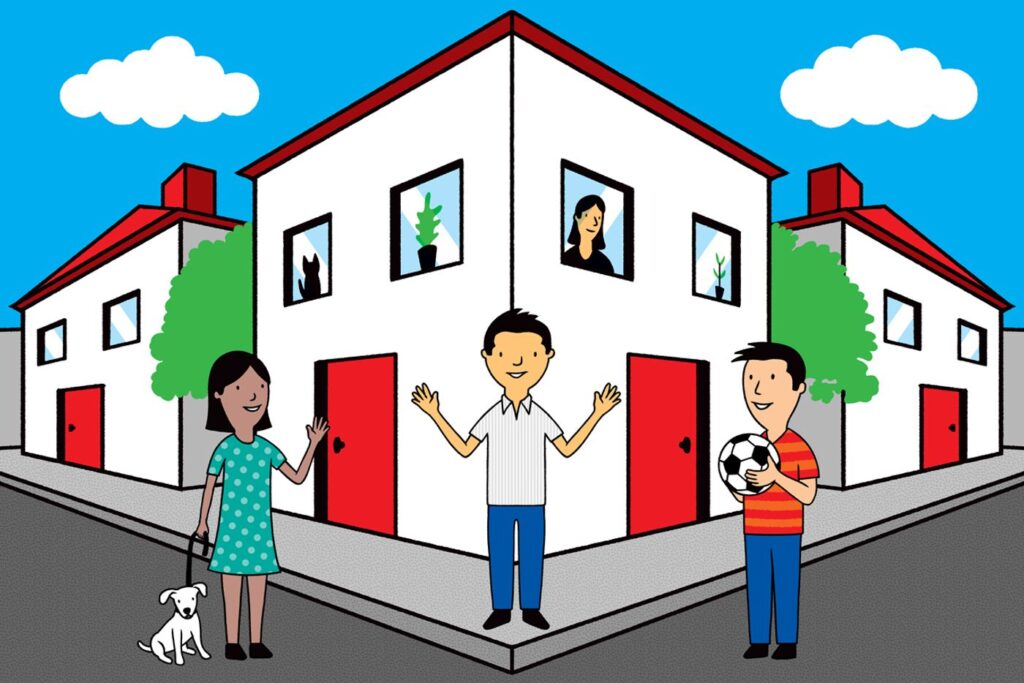The Power of a Good Neighborhood
By Susan Pinker
https://www.wsj.com/articles/the-power-of-a-good-neighborhood-d1c2e2c1
Sociologists have long known that growing up surrounded by poverty is corrosive for a child’s life chances. The 2020 book “The Origins of You: How Childhood Shapes Later Life,” written by a team of four developmental psychologists, showed that children who grow up in disadvantaged neighborhoods are more likely to remain antisocial and badly behaved when they get older, while their peers in better neighborhoods mature and stop acting out. This is especially true of boys.
Similarly, the Harvard economist Raj Chetty has shown that the zip code a person grows up in helps to predict the likelihood that they will drop out of high school, get pregnant as a teenager or be incarcerated. Now a new study from the Netherlands has found that a key factor in a child’s ultimate level of education, even more important than their own family’s economic situation, is whether they grow up with affluent neighbors nearby.
Researcher Agata Troost and her colleagues at Delft University of Technology used a national database to track the address of every Dutch baby born in 1995, a total of 140,338 people, from birth to age 23. Using geolocating software, they drew up a socioeconomic profile for each child’s immediate neighborhood, calculating the percentage of neighbors who were affluent, middle class or disadvantaged.
After controlling for a number of other factors, including parents’ earnings and levels of education, the researchers found that a child’s own experience of wealth or poverty mattered less to their ultimate level of schooling than exposure to well-off neighbors. The data suggest that growing up in an affluent area, with well-maintained parks, libraries and soccer fields, as well as interactions with educated neighbors, could boost a poor child’s ability to see beyond her immediate horizon.
“Affluent families create neighborhoods and activities that create opportunities,” said Ms. Troost, and these advantages are shared with other children who happen to live nearby. The finding echoes an earlier study by Mr. Chetty and colleagues, which showed that having even one inspiring teacher in middle school can enhance a student’s career prospects. Whether in the classroom or on the street, it seems that social interactions outside the family can kickstart a young person’s motivation and ambition.
At the same time, the study also underscored the importance of the home environment. When parents are well educated, children are likely to be, too. Whether the family lives in a depressed, about-to-be-gentrified corner of a city or in an isolated rural town, the parents’ education acts as a protective halo.
And that’s the moral of the story: Neighborhoods can have different effects on different children, depending on how educated their parents are, whether they are male or female, and how much casual contact they have with people who are different from their own families. “Location, location, location” may be a real estate cliché, but we’re learning that it also holds true for children’s development.


